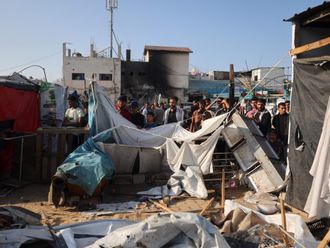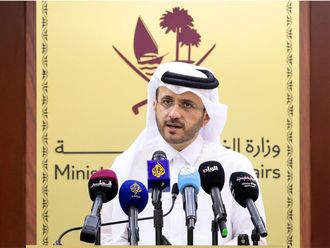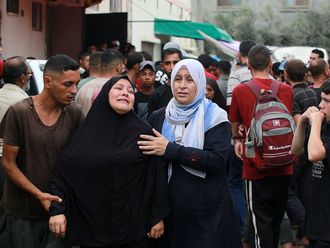Vienna: The United States warned Syria on Friday it may face action by governors of the UN nuclear watchdog if Damascus fails to give its inspectors access to the remains of a suspected nuclear site in the desert.
It has been over two years since the International Atomic Energy Agency (IAEA) was allowed to visit the Dair Alzour site in Syria where secret nuclear activity may have taken place before it was bombed to rubble by Israel in 2007.
US intelligence reports have said it was a nascent North Korean-designed reactor geared to produce bomb fuel. Syria, an ally of Iran which is under IAEA scrutiny over its uranium enrichment drive, denies hiding nuclear work from inspectors.
Glyn Davies, Washington's IAEA envoy, said in a speech posted on the US mission's website on Friday it was "urgent and essential" that Syria heed UN inspectors' requests for extended access to sites, personnel and material.
Consider all measures
"Absent clear action by Syria to cooperate fully with the IAEA, we are rapidly approaching a situation where the (IAEA) board (of governors) and secretariat must consider all available measures and authorities...," he said.
Davies said earlier this year that a number of countries were beginning to ask whether it was time to invoke the IAEA's "special inspection" tool to give its inspectors the authority to look anywhere necessary in Syria at short notice.
The Vienna-based, UN-affiliated body last resorted to such a prerogative in 1993 in North Korea, which still withheld access and later developed nuclear bomb capacity in secret.
Syria is now seen as unlikely to yield to a special inspection. Diplomats and analysts believe the IAEA will refrain from escalating the dispute at a time of rising tension with Iran, which the West suspects of seeking nuclear weapons.
Circumstances cry out
If Syria were to reject a request for a special inspection, the 35-nation IAEA board could vote to refer the issue to the UN Security Council, as it did with Iran's dossier four years ago. The board next convenes in early December.
The former global director of IAEA inspections, Olli Heinonen, said that in Syria's case the "circumstances cry out" for deploying a special mission because of its reluctance to give the IAEA access to relevant persons, equipment and sites.












